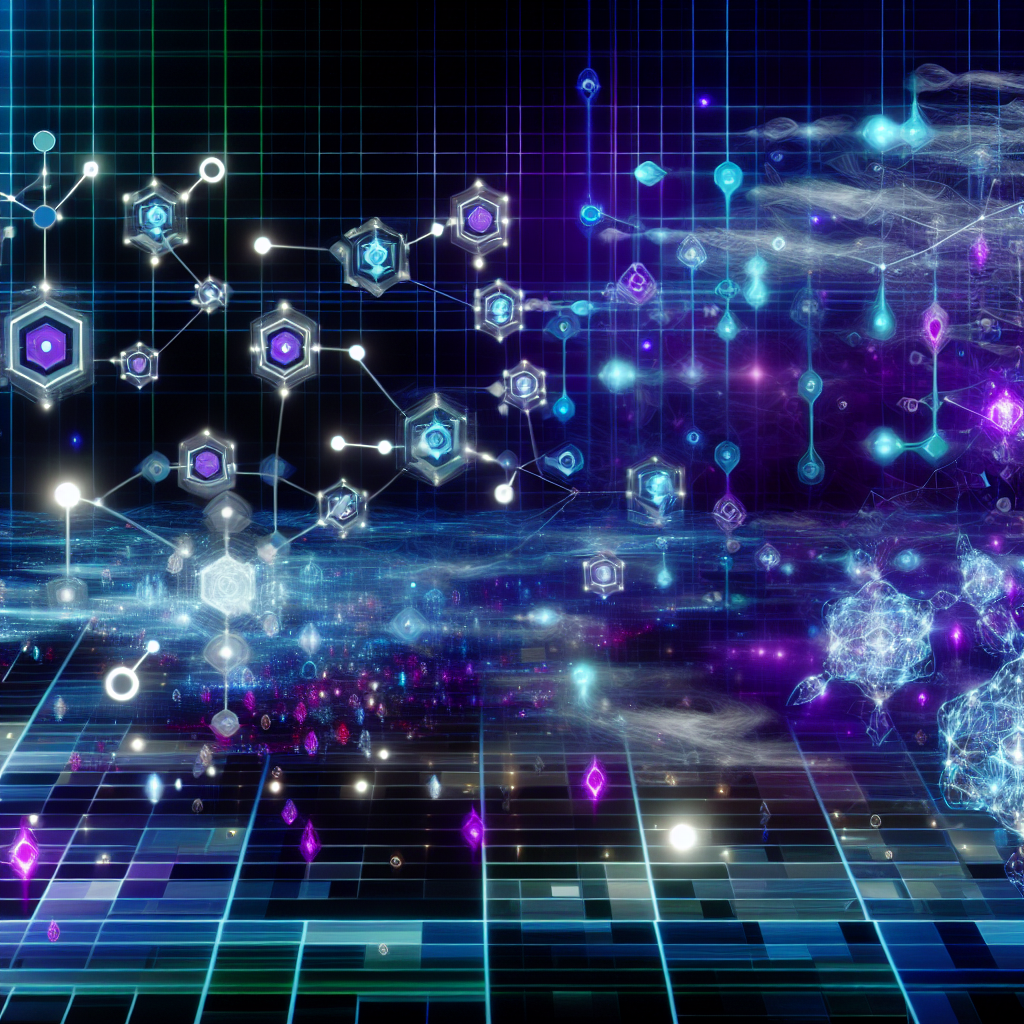In the ever-evolving landscape of blockchain technology, the significance of smart contracts cannot be overstated.
These self-executing contracts, with their terms directly written into code, embody the essence of decentralization and trustlessness. However, as the complexity of blockchain networks increases, so does the need for optimizing the performance of smart contracts. This is where artificial intelligence (AI) enters the scene, offering transformative solutions that could redefine how we approach smart contract development and execution.
Understanding Smart Contracts
Smart contracts operate on blockchain platforms, facilitating, verifying, and enforcing the negotiation or performance of a contract. They eliminate the need for intermediaries, reducing costs and increasing efficiency. Yet, as the adoption of smart contracts grows, developers face challenges concerning gas fees, execution speed, and security vulnerabilities. The intricacies of code can lead to inefficiencies that not only elevate costs but also expose users to risks. Thus, the quest for optimization becomes paramount.
The Role of AI in Smart Contract Optimization
AI, with its capacity to analyze vast datasets and identify patterns, emerges as a powerful ally in the realm of smart contracts. By leveraging machine learning algorithms, developers can assess existing smart contracts, uncover inefficiencies, and propose enhancements. This process often involves training AI models on historical contract performance data, enabling them to predict potential bottlenecks and suggest optimizations.
Enhancing Code Efficiency
One of the primary ways AI optimizes smart contracts is through code efficiency. Smart contracts are executed on the Ethereum Virtual Machine (EVM), where every operation consumes gas. High gas consumption can deter users from executing transactions and lead to higher costs for developers. AI can analyze the bytecode of smart contracts, pinpointing redundancies and inefficiencies that might inflate gas usage. By optimizing code, developers can reduce costs while enhancing user experience.
Predictive Analytics for Gas Optimization
Gas optimization is a crucial aspect of smart contract performance. Developers often struggle to predict gas fees associated with contract execution, leading to uncertainty and potential loss of user engagement. AI can provide predictive analytics, analyzing past transaction data to forecast gas fees for future executions. By understanding these patterns, developers can make informed decisions about contract design and deployment, ultimately leading to a more cost-effective solution for users.
Automated Testing and Security Enhancements
Security is a paramount concern in the blockchain space. Smart contracts are immutable, meaning that once deployed, they cannot be altered. Consequently, any vulnerabilities present in the code could lead to substantial financial losses. AI-driven automated testing tools can simulate various attack scenarios, identifying potential vulnerabilities before deployment. These tools leverage machine learning to continually improve their testing methodologies, adapting to new threats as they emerge. This proactive approach to security enhances the reliability of smart contracts and builds user trust.
Natural Language Processing for Contract Understanding
The complexity of smart contract code can be daunting, even for seasoned developers. Natural Language Processing (NLP), a subfield of AI, can bridge this gap by translating smart contract code into human-readable language. This capability can significantly enhance collaboration between developers, legal experts, and stakeholders, ensuring that all parties understand the contract’s terms and implications. Additionally, NLP can assist in drafting contracts by analyzing existing contracts for common clauses and structures, streamlining the development process.
Streamlining Deployment with AI
The deployment of smart contracts can be a cumbersome process, often requiring extensive testing and validation. AI can streamline this process by automating deployment workflows. By analyzing code changes and historical deployment data, AI can predict the most effective deployment strategies, minimizing downtime and potential errors. Furthermore, AI can monitor the performance of deployed contracts, providing real-time analytics that help developers make informed decisions about future updates.
Scalability Solutions
As blockchain networks expand, the challenge of scalability becomes increasingly pertinent. Smart contracts that perform well on a small scale may falter under heavy loads. AI can assist in developing scalability solutions by predicting transaction volumes and optimizing resource allocation. By analyzing user behavior and transaction patterns, AI can help developers design contracts that adapt to varying loads, ensuring consistent performance regardless of network congestion.
Improving User Experience
User experience is a critical factor in the adoption of smart contracts. If users encounter high gas fees or slow execution times, they may be dissuaded from utilizing the technology. AI can enhance user experience by providing insights into optimal transaction times, guiding users on when to execute transactions to minimize costs. Additionally, AI-powered chatbots can assist users in navigating smart contract interfaces, answering questions and providing guidance in real-time.
Ethical Considerations and Challenges
While the integration of AI in optimizing smart contracts offers numerous benefits, it also raises ethical considerations. The reliance on AI for critical functions necessitates a discussion about accountability and transparency. Developers must ensure that AI algorithms are free from bias and that their decision-making processes are understandable. Moreover, the potential for AI to be manipulated must be addressed, as adversaries may seek to exploit vulnerabilities in AI systems to undermine smart contracts.
The Future of AI and Smart Contracts
The intersection of AI and smart contracts is still in its infancy, yet the potential for growth is immense. As technology continues to advance, we can anticipate more sophisticated AI tools that will further enhance smart contract optimization. The evolution of decentralized finance (DeFi) and non-fungible tokens (NFTs) will require innovative solutions that balance performance, security, and user experience. The marriage of AI and blockchain technology could pave the way for unprecedented efficiency and reliability in contract execution.
Conclusion
The integration of AI into the realm of smart contracts represents a paradigm shift in how we approach contract design, execution, and optimization. By harnessing the power of AI, developers can enhance code efficiency, predict gas fees, bolster security, and ultimately improve user experience. However, as we navigate this promising landscape, it is crucial to remain vigilant regarding ethical considerations and potential challenges. The future holds immense potential for those willing to explore the synergy between AI and smart contracts, crafting a more efficient and secure blockchain ecosystem.


